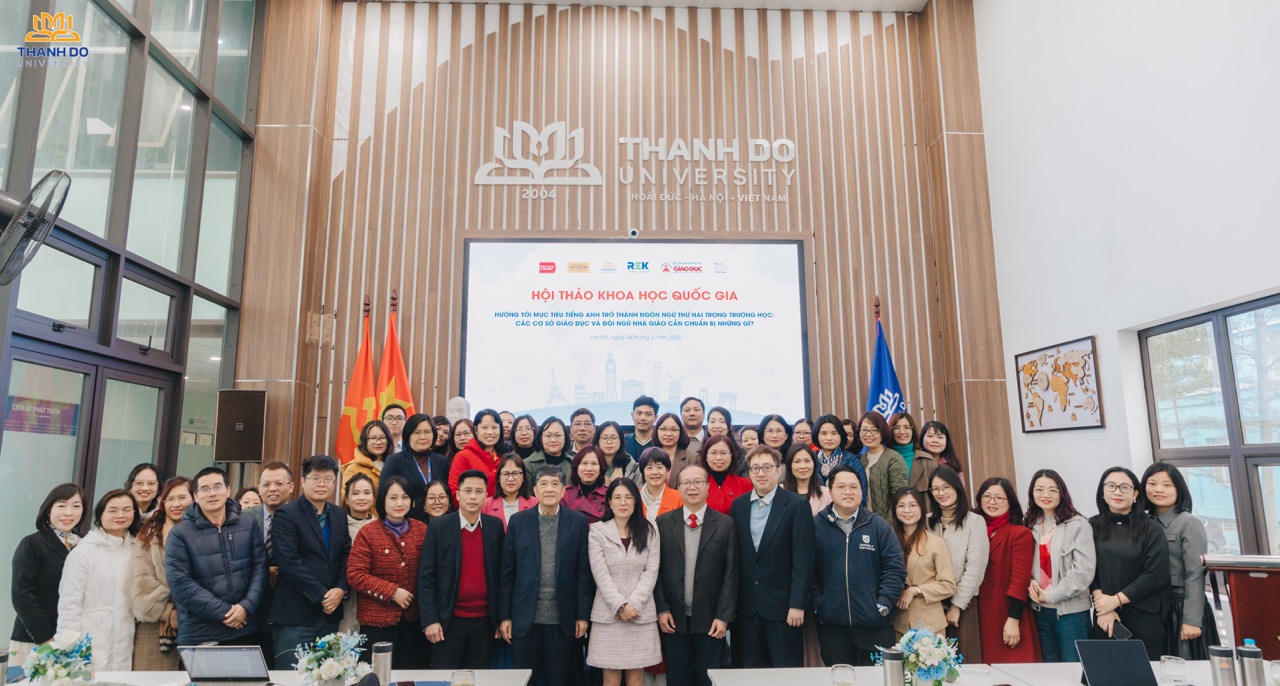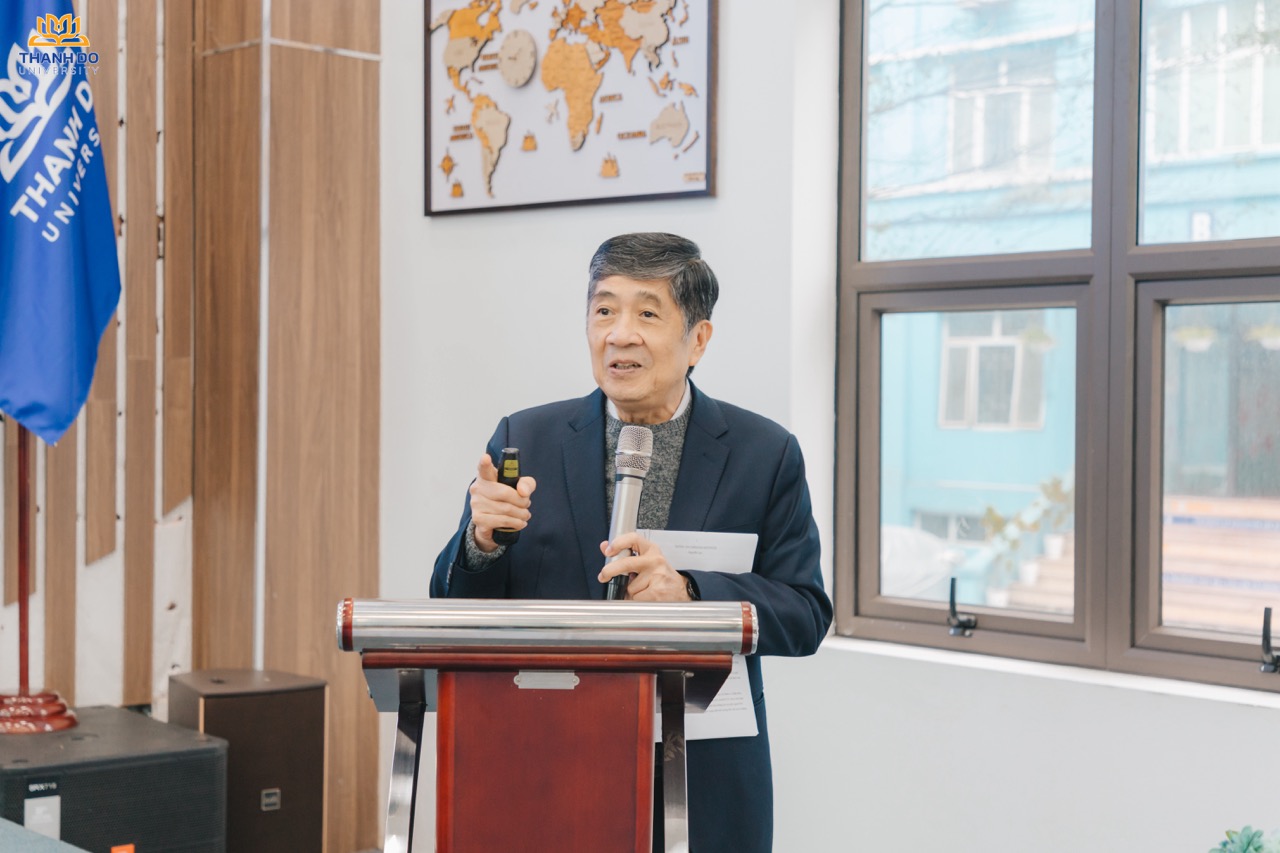


03/04/2025



In order to achieve the goal of making English the second language in schools, as outlined in the Politburo’s Conclusion No. 91-KL/TW, a comprehensive and systematic approach is necessary. This includes policy adjustments, innovation in teaching methods, and improving the capacity of the teaching workforce.
This was the consensus among education experts at the National Scientific Conference titled “Towards the Goal of Making English the Second Language in Schools: What Should Educational Institutions and Teachers Prepare?”, recently held at Thanh Do University. The event gathered nearly 200 scholars, researchers, doctoral candidates, and educators from across the country.
At the conference, Prof. Dr. Nguyen Loc, former Vice President of the Vietnam Institute of Educational Sciences, presented a new perspective on the correlation between English proficiency and a country’s economic development. He offered recommendations emphasizing the need to carefully consider the so-called “intermediate English proficiency trap,” advocating for appropriate goals in developing English skills. He suggested that English teaching programs should not be overly focused on economic roles, and that balanced resources are key to overcoming the proficiency trap.

Prof. Dr. Nguyen Loc stressed that although the number of English learners in Vietnam continues to grow, the quality of training and real-life usage remain below expectations. Regional disparities, varying teacher competencies, and psychological barriers—such as language anxiety and the lack of practical environments—have contributed to this “intermediate level trap.” To address this, he recommended long-term education policies focusing on practical language skills rather than traditional academic approaches.
Additionally, Vietnam needs a unified accreditation system for English training programs. Assoc. Prof. Dr. Nguyen Huu Cuong, Head of Quality Assurance and Head of the Education Research Group at Van Lang University, gave suggestions for how Vietnamese institutions can better prepare for both local and international accreditation. He highlighted the growing trend of accrediting English courses specifically, in addition to institutions and general programs.

As part of standardizing English training programs, innovative teaching methods were also emphasized. MA Ngo Huy Tam, an education consultant, analyzed integrated approaches using models like CLIL (Content and Language Integrated Learning), CALLA (Cognitive Academic Language Learning Approach), and EMI (English as a Medium of Instruction) in K-12 education. These methods aim to improve bilingual education and pave the way for English to become the second language in Vietnam.
Similarly, MA Nguyen Thi Lien Huong from the Institute of Educational Research and Knowledge Transfer at Thanh Do University provided a comprehensive overview of English teaching research in Vietnam. Using bibliometric analysis, she mapped research trends, collaboration patterns, and policy contributions, identifying key areas, challenges, and recommendations for enhancing English language education.

At the conference, two outstanding research papers received the Best Paper Award, offering significant contributions to English language teaching:
“Enhancing Second Language Listening Skills through Technology-Enhanced Task-Based Language Teaching” – This study demonstrated the effectiveness of using tech-supported, task-based teaching to improve listening skills, motivation, and confidence among high school students.
“Transforming TESOL Practices through Cognitive Psychology: A Collaborative Action Research with a Secondary School English Teacher” – This research applied principles of cognitive psychology to teaching, helping educators integrate concepts like working memory, metacognition, and growth mindset into their classrooms.
These studies not only provide practical applications but also contribute meaningfully to the transformation of English into a second language within Vietnam’s education system.
The conference sparked deep discussions about the future of English education in Vietnam. With a focus on improving teaching quality and meeting international integration standards, it offered both theoretical insights and practical solutions—from policy formulation and teaching innovation to classroom technology integration.
Teachers and educators can access the full conference materials here!
| Thanh Do University
Method 1: In-person at the university or via postal delivery
Method 2: Online
|